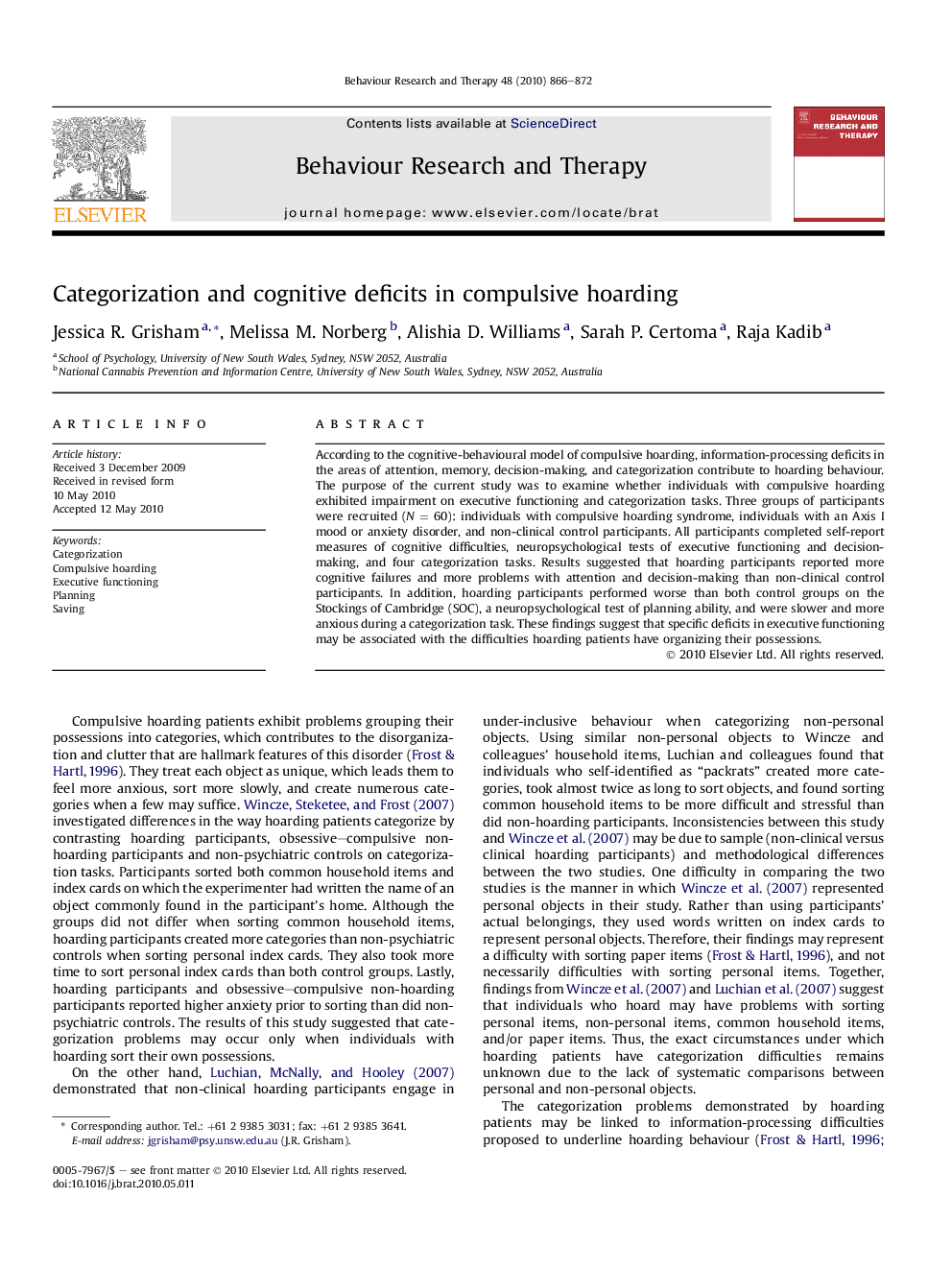| Article ID | Journal | Published Year | Pages | File Type |
|---|---|---|---|---|
| 10444612 | Behaviour Research and Therapy | 2010 | 7 Pages |
Abstract
According to the cognitive-behavioural model of compulsive hoarding, information-processing deficits in the areas of attention, memory, decision-making, and categorization contribute to hoarding behaviour. The purpose of the current study was to examine whether individuals with compulsive hoarding exhibited impairment on executive functioning and categorization tasks. Three groups of participants were recruited (NÂ =Â 60): individuals with compulsive hoarding syndrome, individuals with an Axis I mood or anxiety disorder, and non-clinical control participants. All participants completed self-report measures of cognitive difficulties, neuropsychological tests of executive functioning and decision-making, and four categorization tasks. Results suggested that hoarding participants reported more cognitive failures and more problems with attention and decision-making than non-clinical control participants. In addition, hoarding participants performed worse than both control groups on the Stockings of Cambridge (SOC), a neuropsychological test of planning ability, and were slower and more anxious during a categorization task. These findings suggest that specific deficits in executive functioning may be associated with the difficulties hoarding patients have organizing their possessions.
Related Topics
Health Sciences
Medicine and Dentistry
Psychiatry and Mental Health
Authors
Jessica R. Grisham, Melissa M. Norberg, Alishia D. Williams, Sarah P. Certoma, Raja Kadib,
